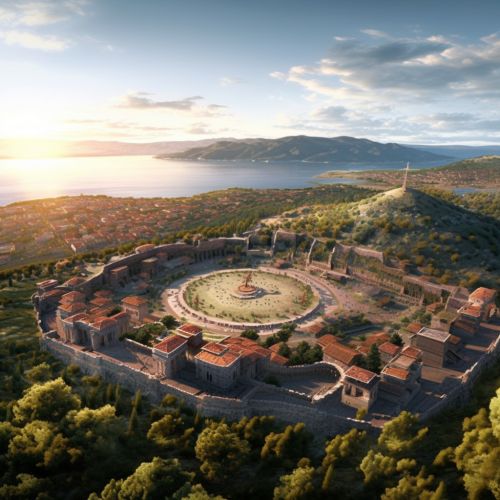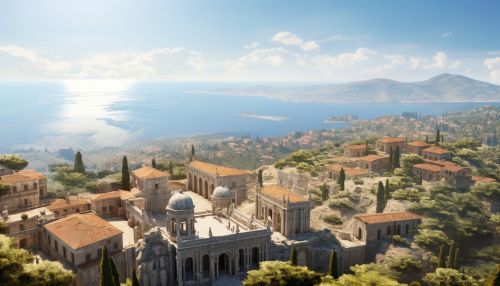Alcaeus
Early Life
Alcaeus was born around 620 BC in Mytilene, the capital city of the island of Lesbos. He belonged to the aristocratic ruling class of the time, the oligarchy. His father's name was Antimenidas, and his brothers' names were Antimenidas and Cicis. The family was involved in political disputes and power struggles that marked the history of Mytilene.


Political Involvement
Alcaeus and his brothers were deeply involved in the political life of their city. They were part of the ruling oligarchy, and they took part in the factional conflicts that characterized the political life of the Greek city-states. Alcaeus was exiled several times due to these conflicts, and his poetry often reflects his political views and experiences.
Poetry
Alcaeus is one of the most famous lyric poets of ancient Greece. His poetry was composed to be sung and accompanied by the lyre, a musical instrument similar to a small harp. His poems cover a wide range of topics, from political events and personal experiences to love and wine.
Alcaeus invented the Alcaic stanza, a verse form that consists of four lines. The Alcaic stanza was later used by the Roman poet Horace, who admired Alcaeus's poetry.
Themes and Style
Alcaeus's poetry is characterized by its directness and clarity of expression. He wrote about his personal experiences, his political views, and his love affairs. His poetry also reflects his love for his native city of Mytilene and his deep concern for its political troubles.
Alcaeus's style is characterized by its vividness and energy. He used a rich vocabulary and a variety of metrical forms. His poetry is marked by its emotional intensity and its vivid evocation of personal and political events.
Influence and Legacy
Alcaeus's poetry had a significant influence on later poets. His Alcaic stanza was adopted by the Roman poet Horace, who admired Alcaeus's work. Alcaeus's poetry was also admired by the Greek philosopher Aristotle, who quoted from it in his work.
Alcaeus's poetry has survived in fragments, but these fragments give us a vivid picture of his life and times. His poetry provides valuable insights into the political and social life of ancient Greece, and it continues to be studied and admired for its literary quality and its historical significance.
